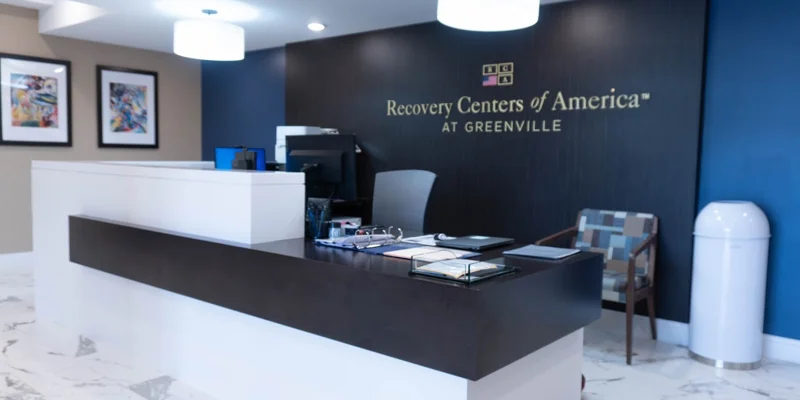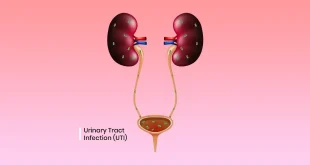What are Recovery Centers?
Recovery centers play a crucial role in helping individuals overcome addiction and regain control of their lives. These centers offer a wide array of treatment programs and services designed to address the complex nature of addiction. This article delves into the various types of treatments offered at recovery centers, the importance of personalized treatment plans, and the role of medical professionals in the recovery process. Additionally, we will examine the benefits of inpatient versus outpatient programs and the support services available to patients and their families.

What Is Medical Detox?
Medical detox is a critical first step in the recovery process for individuals struggling with substance addiction. It involves the supervised removal of toxic substances from the body, ensuring safety and comfort during withdrawal. Here’s a closer look at what medical detox entails:
Supervised Environment: Medical detox is conducted in a controlled setting, often within a recovery center or hospital, where healthcare professionals can monitor the patient’s vital signs and manage withdrawal symptoms.
Withdrawal Management: Withdrawal symptoms can vary depending on the substance and the individual’s health. Medical detox provides medications and therapies to alleviate symptoms such as nausea, anxiety, seizures, and insomnia.
Safety and Support: The presence of medical staff ensures that any complications are promptly addressed, reducing the risk of severe health issues during detoxification.
Preparation for Further Treatment: Detox is not a standalone treatment but a preparatory phase for further rehabilitation. It clears the body of substances, allowing individuals to engage more effectively in therapy and counseling.
Personalized Care: Each detox plan is tailored to the individual’s needs, considering factors like the type of substance, duration of use, and overall health.
Medical detox is essential for a safe and effective transition into addiction treatment programs, setting the foundation for long-term recovery. If you need more specific information or assistance, feel free to ask!
Detoxification: The First Step in Recovery
Detoxification, often the first step in the recovery process, involves the safe removal of addictive substances from the body. Recovery centers provide medically supervised detox programs to manage withdrawal symptoms and ensure patient safety. This phase is critical as it prepares individuals physically and mentally for further treatment.
Comprehensive Therapy Sessions
Therapy is at the heart of recovery center programs. Individual therapy allows patients to explore the root causes of their addiction with a trained therapist, while group therapy offers peer support and shared experiences. Cognitive-behavioral therapy (CBT) is frequently used to help patients develop coping strategies and change destructive thought patterns. Family counseling is also integral, fostering better communication and understanding among family members and preparing them for post-treatment support roles.
Aftercare Planning for Long-term Success
Aftercare planning is essential to sustain recovery after leaving a treatment center. Recovery centers typically offer continued support through outpatient therapy, support groups, and relapse prevention strategies. Aftercare plans are tailored to each individual’s needs, emphasizing the importance of ongoing engagement with recovery resources.
Personalized Treatment Plans
One of the key elements of successful treatment is personalized care. Recovery centers assess each patient’s unique circumstances, including the severity of addiction, mental health conditions, and personal goals. This comprehensive evaluation enables the development of customized treatment plans that maximize the chances of sustained recovery.
The Role of Medical Professionals
Medical professionals, including doctors, nurses, and therapists, play a pivotal role in the recovery process. They provide medical care during detox, administer medications when necessary, and offer psychological support. Their expertise ensures that patients receive holistic care addressing both the physical and mental aspects of addiction.
Inpatient vs. Outpatient Programs
Inpatient programs provide a structured environment where patients reside at the facility for the duration of their treatment. This immersive approach is beneficial for individuals with severe addictions or those needing constant medical supervision. In contrast, outpatient programs offer flexibility, allowing patients to live at home while attending scheduled treatment sessions. This option suits individuals with milder addictions or those who cannot commit to a residential program due to personal obligations.
Support Services: Group Therapy and Family Counseling
Support services are vital components of recovery centers. Group therapy sessions create a sense of community and enable participants to share challenges and successes. Family counseling helps mend relationships and prepares families to support their loved ones in recovery. These services contribute significantly to a supportive healing environment.
Holistic Approach to Recovery
Many recovery centers adopt a holistic approach, recognizing the importance of treating the whole person—body, mind, and spirit. This approach may include fitness programs, nutritional counseling, mindfulness practices, and art therapy, all designed to enhance overall well-being and resilience.
In conclusion, recovery centers offer diverse treatment programs and services, each tailored to meet the unique needs of individuals battling addiction. From detoxification and therapy to aftercare planning and support services, these centers provide a comprehensive framework for recovery. By understanding the benefits of personalized care, the roles of medical professionals, and the value of a holistic approach, individuals seeking help can embark on a path to lasting recovery.
Best Recovery centers in the US for 2024
Here are some resources to explore the best recovery centers in the US for 2024:
America’s Best Addiction Treatment Centers 2024 – This ranking lists 400 top inpatient, long-term, and residential addiction treatment centers across 25 states.
Top Drug Rehab Centers in the USA – Features centers like the Banyan Treatment Center, known for its comprehensive inpatient and outpatient programs.
50 Best Alcohol Rehab Centers of 2024 – A curated list of top alcohol rehabilitation centers, including pricing and reviews.
Browse 200+ Best Rehab Centers In The U.S. in 2024 – Offers a guide to finding the best addiction treatment centers and what to consider when choosing one.
10 Best Alcohol Rehab Facilities in the US (2024 Update) – Provides options for reclaiming life from alcoholism with various treatment possibilities.
These resources should help you find a recovery center that fits your needs. If you need more specific information, feel free to ask!


